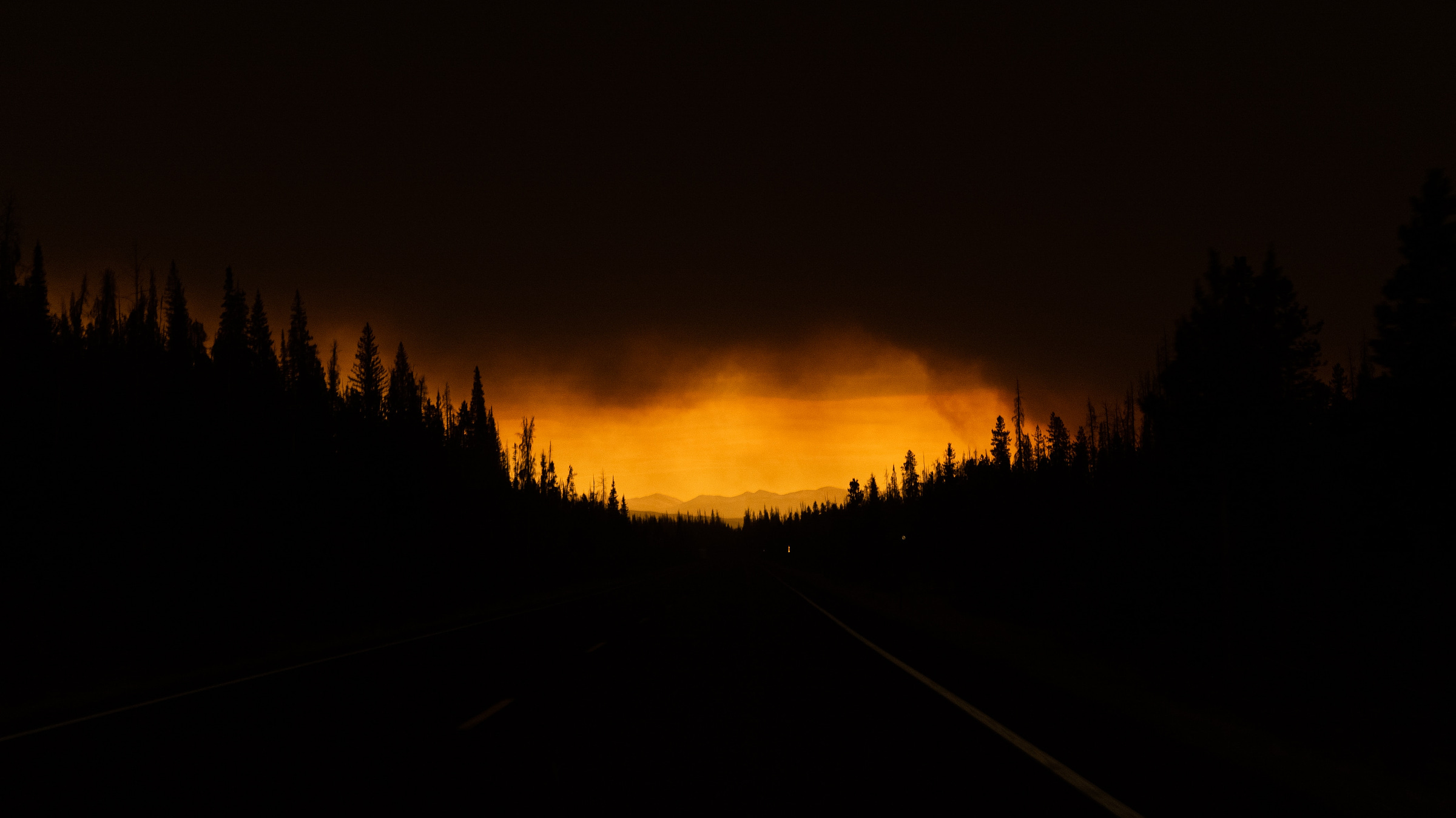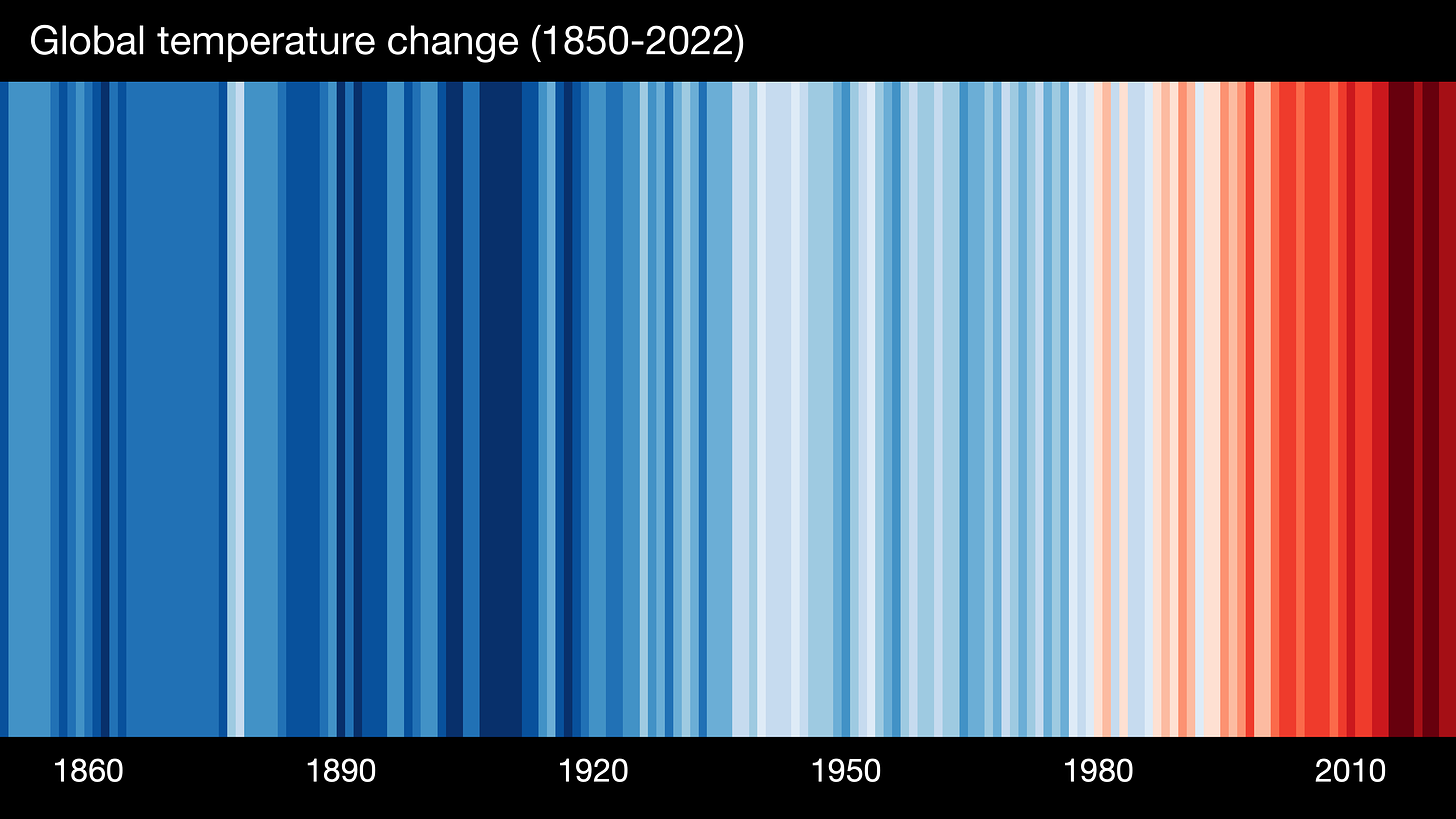Climate danger is spreading; we need an accelerated holistic response
May 7, 2023•426 words
Last year, a landmark study found that wildfires in the American west have become four times larger and occur three times as frequently than in the year 2000. The paper was led by the University of Colorado at Boulder, written by Virginia Iglesias, Jennifer K. Balch, and William R. Travis, and published in the journal Science Advances.

Smoke from the East Troublesome Fire blankets Route 34 exiting Rocky Mountian National Park. Photo credit: Evan Wise.
Researchers found that large fires were more likely to occur around the same time as other large fires. This means resources will be strained far more than if large fires were not simultaneous, and there is heightened risk of large fires merging, into catastrophic regional fire systems, as witnessed in California and Australia in 2020 and 2021. 2021 also saw fires in Siberia bigger than all other fires combined.
Nature loss makes it even harder to counter global heating. Carbon is sequestered by living organisms. Life is what draws down carbon. Human activity has caused the loss of 83% of wild mammals and half of plants. Scientists have found that global heating contributes to nature loss and increases the release of stored carbon, creating a dangerous feedback loop.
Temperatures over the eastern Antarctic Ice Sheet have reached 70°F above normal in recent years. The extreme temperature deviation is a sign of underlying climate destabilization, and its impacts can accelerate loss of both glacial and sea ice, accelerating that destabilization.

Visualization of global temperature change from 1850 through 2022. Image credit: Ed Hawkins, University of Reading. Data: UK Met Office.
Meanwhile, the Middle East and North Africa (MENA) region is effectively running out of water. Food insecurity has spread to record levels since the COVID-19 pandemic began—in part because global production was already threatened by background climate disruption.
The four major reports of the Intergovernmental Panel on Climate Change 6th Assessment—Working Groups 1, 2, and 3, and the Synthesis Report—make clear: The window for achieving successful climate resilient development is closing; countering vulnerability is a shared imperative; the shift to climate-safe practices must move forward at unprecedented speed, everywhere.

The IPCC AR6 report shows climate resilient development is still possible, but only if we act quickly to transform industrial systems and make all the right choices at critical junctures. Image: IPCC.
What all of this tells us is that integrated and holistic approaches are urgently needed—to trace connections between human and natural systems, to identify areas of non-financial value that affect everyday health and wellbeing, to support climate-sensitive trade and security cooperation, and to stop the spread of severe food insecurity and water scarcity.